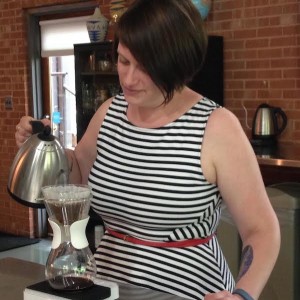What is sustainable coffee?
As a member of the Specialty Coffee Association of America Sustainability Council, Meredith Taylor says this question, as simple as it sounds, is somewhat unanswerable.
“We’ve wondered in the sustainability council if we should define sustainable coffee,” Taylor recently told Daily Coffee News. “But is that our job to do? Is it possible to do? I know it’s going to be difficult for us to know what we’re talking about as an industry if we’re not transparent about this.”
Transparency is among the key charges for Taylor in her new role as sustainability coordinator for Durham, N.C.-based roaster and wholesaler Counter Culture Coffee. CCC has long been one of coffee’s most forward-thinking companies, but its 8-year-old sustainability department has essentially been manned by one person until now, green coffee buyer and sustainability manager Kim Elena Ionescu.
While Ionescu’s sustainability efforts have naturally leaned toward supply sustainability and issues at origin, Taylor says she hopes to help the company grow a more well-rounded sustainability approach.
“Think companies like Patagonia, Seventh Generation or New Belgium — when people think of sustainable companies, we want to be on that list,” says Taylor, who got her start in coffee as a barista then manager at Washington D.C.’s Peregrine Espresso. “We’ve done a lot toward sustainability in the coffee world, but not much outside the coffee world.”
To this end, Taylor says the company plans to look deeper inward. “This new position is meant to do a lot of the projects that have been thought of, but that have been put on hold,” she says. “We’re trying to figure out all the sustainability metrics we want to track internally and figure out procedures to measure those.”
For example, under Ionescu’s leadership, CCC has measured seed-to-cup greenhouse gas emissions for several years, but it has not yet tracked internal water usage. The idea is to develop a sustainability approach that reaches every part of the company, from origin to roastery to board room to wholesale delivery.
“We’re also figuring out good ways to report all this stuff,” says Taylor. “We want to be increasingly transparent, and part of that involves getting that raw data and transforming it into something usable, interesting and digestible.”
That digestible data, she says will improve both internal and external communications regarding the company’s sustainability plan. Says Taylor, “I’ve been talking a lot with marketing about how to better communicate the sustainability of our coffees, not necessarily to consumers, but to our employees and our partners.”
This goes back to the problematic question of defining sustainable coffee.
“How do we communicate that sustainability is a spectrum?” Taylor asks. “A lot of times, sustainability is presented as a dichotomy — ‘Is this coffee organic or is it not?’ Well, there are farms that are organic but not socially or environmentally sustainable. There is no clear definition of sustainable coffee, and we need to evolve our collective understanding of the spectrum.”
Taylor is spending some of here existing time simply brushing up on buzzwords and other corporate-speak — the unfortunate result of sustainability increasingly making good business sense. “There is a lot of that corporate-speak and jargon,” she says. “I think it’s important for us to understand how other companies talk about sustainability, even if we don’t want to use that language.”
CCC has launched a new sustainability section on its site, including several new blog posts from Taylor on the company’s sustainability program, as well as coffee sustainability issues, at large.
Nick Brown
Nick Brown is the editor of Daily Coffee News by Roast Magazine.







Comment